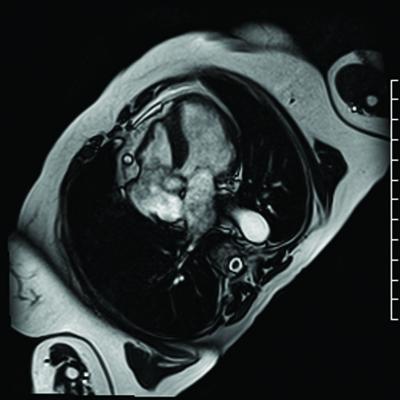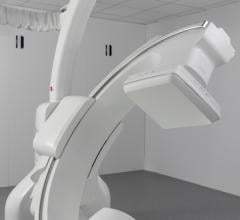
May 10, 2016 — Cardiovascular magnetic resonance (CMR) is a stronger predictor of risk for major adverse cardiovascular events (MACE) than single-photon emission computed tomography (SPECT) at five years follow-up. The findings are published in Annals of Internal Medicine.
CMR is an MRI scan that focuses on the area around the heart. Unlike SPECT, CMR does not involve ionizing radiation and the large CE-MARC (Clinical Evaluation of Magnetic Resonance imaging in Coronary heart disease) study demonstrated that CMR had high diagnostic accuracy, with higher sensitivity and negative predictive value compared with SPECT.
However, data on the prognostic value of CMR remain limited. A predefined objective of CE-MARC was to assess the ability of CMR and SPECT to predict MACE at five-year follow-up. To do so, researchers studied 752 patients from the CE-MARC study who were being investigated for suspected coronary heart disease. The patients were scheduled to undergo CMR and SPECT in random order, followed by X-ray coronary angiography (the reference standard) within four weeks. The investigators followed up with patients every year for five years to assess for MACE.
The researchers found that at five-year follow-up, CMR was a stronger predictor of risk for MACE than SPECT, independent of clinical cardiovascular risk factors, angiography result or initial patient treatment. The researchers conclude that CMR should be considered a robust alternative to SPECT for the diagnosis and management of patients with suspected coronary heart disease.
For more information: www.annals.org


 February 13, 2026
February 13, 2026 









